Get Inspired
Why I Stopped Playing Football at age 17
Matthew Solomon is a high school student and lifelong fan of football. When Matthew suffered multiple concussions playing for his high school team, he made the difficult decision to walk away from the game he loves mid-season. Below, Matthew shares why he decided to stop playing football and how his life has been since making the change.
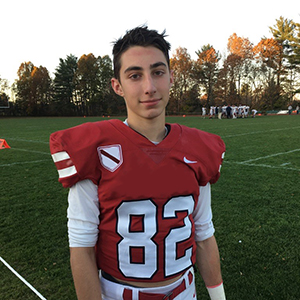
My name is Matthew Solomon. I have loved football for as long as I can remember. No other sport has captured my heart and soul the same way.
Football is a very intricate sport, one that I think many people don’t fully appreciate. Small nuances can make the difference between a hard-fought win or loss. Every game is an exciting adventure to watch, and with only a few games each season, every week counts. Whether you are a player or a fan, when your team is winning, there is no greater feeling of pride.
And the people behind the sport? Football players are a different breed. They may be strong or fast, or both, but always tough, even fearless. Yet in football, no individual alone can carry a team. The whole is always greater than the parts and being part of a team is like a second family. You work together, celebrate together, and share disappointment together. That camaraderie is very powerful, and sometimes even the underdog can achieve incredible victories.
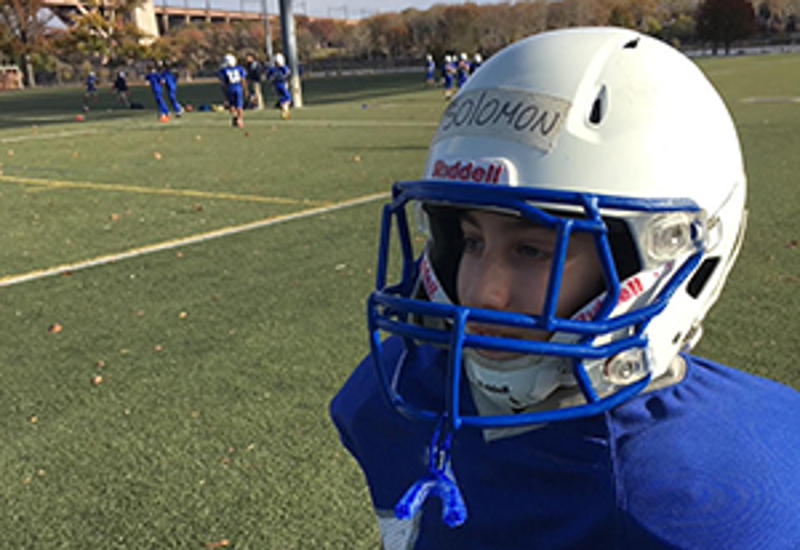
Over the years I played flag football then progressed into tackle. Outwitting, outmuscling, or outrunning an opponent is thrilling. Scoring a touchdown is the greatest feeling in the world.
My brain injuries didn’t start until my freshman year of high school when I blocked a punt with my head. I don’t even really remember it. It was near the end of the game and my adrenaline was running so high, I didn’t start to feel the concussion symptoms until that evening.
After dinner, I saw my school doctor and was placed in a dark room to recover. The doctor alerted my parents, coaches, and teachers, and the return-to-play protocol was slow and thorough. I was told to stay off my phone and my computer. My head hurt and I had a heightened sensitivity to light. I was lethargic and slept a lot, and I wasn’t very hungry. After about 36 hours at the health center, I was sent home for the weekend to rest and was instructed not to read or watch TV. I missed the last football game of the season against our biggest rival. I was sad to miss such a fun tradition at my school.
The next week I went back to class to listen. My teachers were told not to expect that I participate, do homework, or take any tests. The following week catching up on schoolwork was a bit stressful, but I got to go back to the trainer under our return-to-play policy. I was tested for headaches while increasing my workout activity each day before I was allowed to go back to football practice.
The following season, upon falling to the ground after a tackle, I had an awful feeling that I had injured my brain again. I recovered quickly from that hit, but later the same season, I was stiff-armed by a much larger player in a practice and once again suffered a diagnosed concussion.

I knew in my heart that this could impact my long-term health. The concussions seemed to come easily. The risks were becoming great. I was missing school, friends, and time just being a teenager. I see NFL players, some of the best in the world, suffer concussions right before my eyes. I read about CTE and the things that it causes some people do, how they suffer, and maybe hurt others. I see the struggle my grandparents go through with my grandfather’s dementia. Brain health is so fragile, yet so critical to leading a healthy and happy life.
I was angry and sad. After letting it sink in for a bit, and talking to my coach, we decided I would finish the season as a student assistant coach. Aside from helping the coaches at practice and games, I watched film and logged team stats. I was on the sidelines with the squad through all the ups and downs. I love this game whether in pads or not.
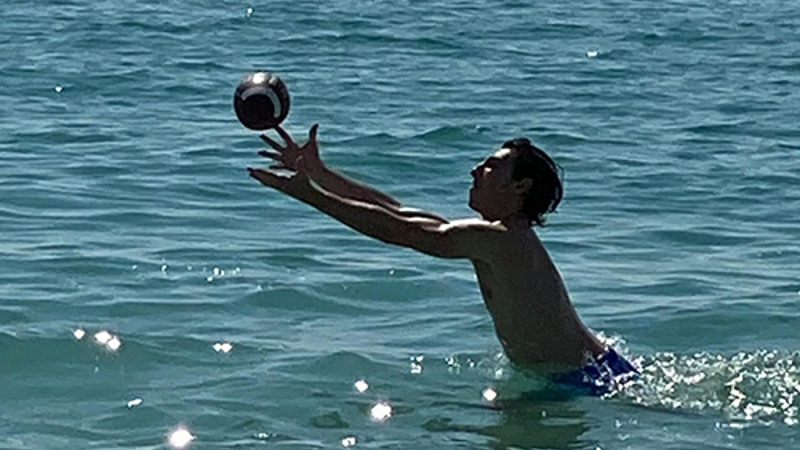
I stay active and have fun in many other ways. Health and fitness are very important to me. I enjoy weightlifting and I run track in the spring. At school, my friend and I started a “rec games” club where we’ve played kickball, capture the flag and other non-contact sports.
I took an online scouting class during the Covid-19 lockdown, track football stats in my free time, participate in a number of football chat rooms, and have fantasy drafts with my friends. I hope to study sports management and work in the professional sports industry someday. I love this game. I always have and I always will.
Every student-athlete has different goals and experiences. I find competing very exciting, and I love the camaraderie of a team. The important thing is to be true to yourself. For me, that means prioritizing my brain health for my future.
If you think you have sustained a concussion, tell a coach, see a doctor, and take the necessary time to heal. If you think you see someone else suffer a concussion, speak up.
You May Also Like
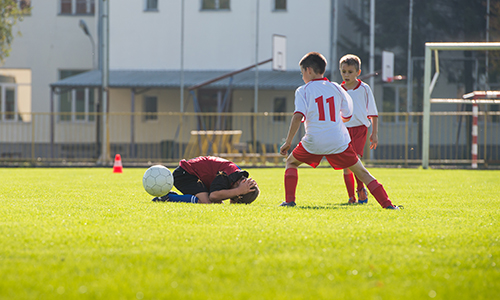
How you respond to a concussion can make all the difference in how you recover. Learn the five steps experts recommend you take after concussion.
Concussion Response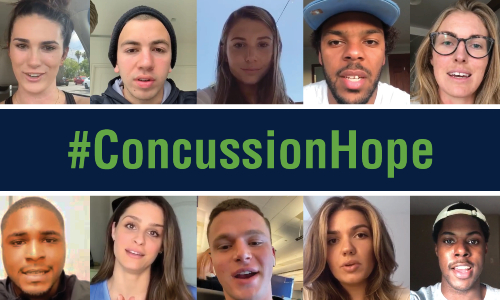
Dealing with a concussion can be difficult, lonely and scary at times - but it's important to remember you will get better. Watch encouraging messages of hope from dozens who have made it through concussion recovery.
Concussion Hope Videos